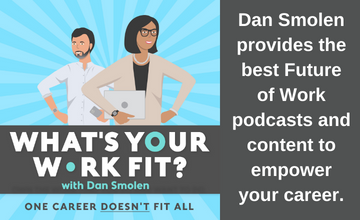Podcast: Play in new window | Download (Duration: 37:17 — 51.3MB)
In this episode, two headhunters discuss recruiting.
During 1998, Victoria James and Dan Smolen both entered the executive recruiting field. After 20 years, Dan moved on to future of work thought-leadership and podcasting, However, Victoria still enjoys a great run in placing executive-level candidates.
Victoria is the founder and president of Victoria James Executive Search.
Her company is a nationally recognized recruitment firm that places top marketing and sales executives across the U.S. Victoria relies on finely tuned consultative sales skill to draw top candidates into great executive roles.
In this episode, Victoria describes:
- Being a successful female executive in a male-dominated culture. Starts at 2:10
- The events that led to her surprising headhunting career-pivot. Starts at 5:28
- The critical importance of well-written candidate résumés. Starts at 16:44
- How technology, and LinkedIn, have transformed headhunting. Starts at 21:46
- The success that she enjoys in working from home. Starts at 23:34
On knowing when to leave a job, Victoria says:
“Sometimes, you just [meet up with someone and] don’t hit it off, no matter what you do or how good you are. That’s a signal for most people to start thinking about another environment.”
When these two headhunters discuss recruiting, listeners can discover valuable insight that they can use to find and do meaningful work.
About our guest:
Victoria James earned a Bachelor of Science in Business Administration from Bloomfield College and an MBA from Baruch College’s Zicklin School of Business. She and her company are based in South Kent, Connecticut.
EPISODE DATE: November 27, 2020
Social Media:
– Victoria James Executive Search Website
– Featured Blog Post: Tackling the Work from Home Dilemma (Again)
